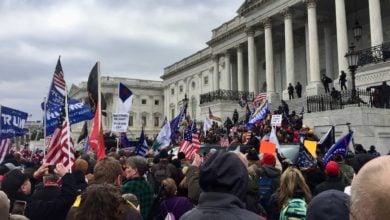After four years of struggle, postdoctoral
researchers at the University of California have overwhelmingly ratified a
five-year contract that includes pay increases, benefits and employment
protections. Although UC postdocs have been attempting to form a union since
2006, they were not formally recognized until 2008 and have been negotiating
with the university for a contract ever since.
|
|
The PRO/UAW union representing more than 6,500
UC workers is by far the largest union of its kind in the U.S. Postdocs working
for the UC system represent 10 percent of all such academic researchers in the
country. This multinational sector of workers performs research in technology,
health, and other scientific fields that leads to new medicines, health
discoveries, and other technological and industrial improvements. Long hours
and relatively low salaries mean than many postdocs earn about $10 per hour.
The credit for discoveries typically goes to higher
paid faculty and any resulting patents are owned by the
university and sold to private corporations.
That these 6,500 workers making leaps in
scientific knowledge could be paid the same or less than custodians at the same
institutions shows that whether a worker has a PhD or a GED matters little to
the capitalist who views all workers as exploitable labor.
Despite $5 billion in federal and state grants
with which to pay researchers, UC repeatedly dragged its feet in negotiations,
using the state budget crisis as an excuse. This was disingenuous on two
counts: one, top UC administrators received huge pay raises in 2009, and two,
UC’s federal research funding has more than doubled over the last 15 years. On
June 9 the union filed charges of unfair labor practices with the state labor
board, citing the UC’s refusal to bargain in good faith after 57 bargaining
sessions over a period of 17 months, some of which lasted nearly 30 hours at a
time.
Throughout the bargaining period, postdocs
mobilized in many different ways to pressure the university to reach a fair
contract. The contract campaign included informational picketing on all UC
campuses, a majority of postdocs signing a public statement to UC President
Mark Yudof, pressure on members of Congress to investigate UC’s stalling
tactics, and direct action protests at Chancellor’s Offices. Ninety-two percent
of postdocs also voted to authorize the bargaining team to call a strike if
necessary.
“The engagement of postdocs in the struggle for
a fair contract was very impressive. Time and
time again in the course of organizing I met postdocs who were ready to fight.
Our sector was overwhelmingly ready for change—and we will continue to
organize for justice,” said Neal Sweeney, a postdoc from UC-Santa Cruz who was
on the union’s bargaining team.
The contract agreement, which
was reached on July 31 after extensive negotiation and ratified by union
members on August 11 by a vote of 2588 to 121, will dramatically improve
pay, benefits, time off and labor protections. The majority of postdocs will
receive an up-front pay increase of 3 percent on October 1 and a new experience-based
minimum salary scale will be instituted. Under this system, postdocs will
receive a 5-7 percent raise for each year of experience and another annual
increase matched to postdoc scale changes set by the National Institutes of
Health. NIH increases have averaged 8 percent per year over the last 35 years. Before
this contract, it was common for postdocs to not receive raises for years, but
once the contract is fully implemented, many could receive annual raises of
more than 10 percent.
Postdocs will now also have many basic labor
protections for the first time: guaranteed time off and maternity leave,
additional health and safety protections, protections against unfair layoff or
discipline, and a grievance system.
This is a clear victory for underpaid university
researchers. In addition to substantial increases in pay, benefits and
protections, the contract will also raise the workers’ level of political
organization. The union of postdoc researchers has most importantly set an
example to other workers throughout the U.S., proving that despite a dramatic
economic downturn and constant attack from the capitalist class, victory is
possible if workers organize and fight back.







